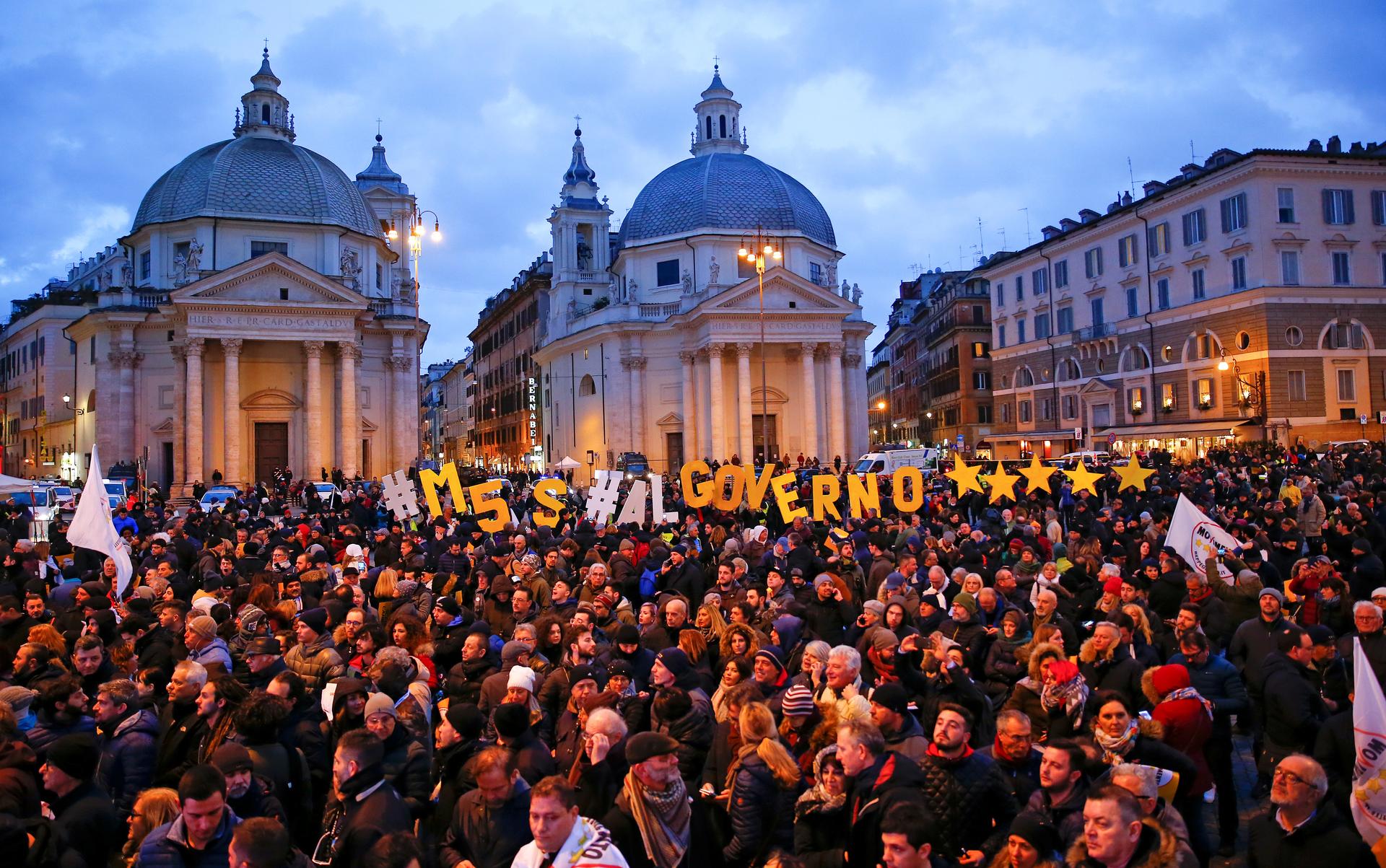The radical populist party that shook Italy’s establishment
Five Star party supporters gather in Piazza del Popolo during the finally rally ahead of the March 4 elections in downtown Rome, Italy, March 2, 2018.
Francesco Berti is showing me around Italy’s parliament, his new place of work. At 27 years old (“nearly 28,” he reminds me more than once), Berti has just been elected to the Chamber of Deputies as part of Five Star Movement — a radical populist party that shook the foundations of Italian politics in recent elections.
“They know just by looking at me that I’m Five Star,” Berti says, as we pass others. That’s partly due to his age. Most Five Star deputies are in their 30s or younger — Five Star leader Luigi Di Maio is only 31. But Berti also doesn’t quite know his way around the building yet, and it shows. He’s a bit like an impostor sneaking down the grand corridors of the 18th-century Palazzo di Montecitorio.
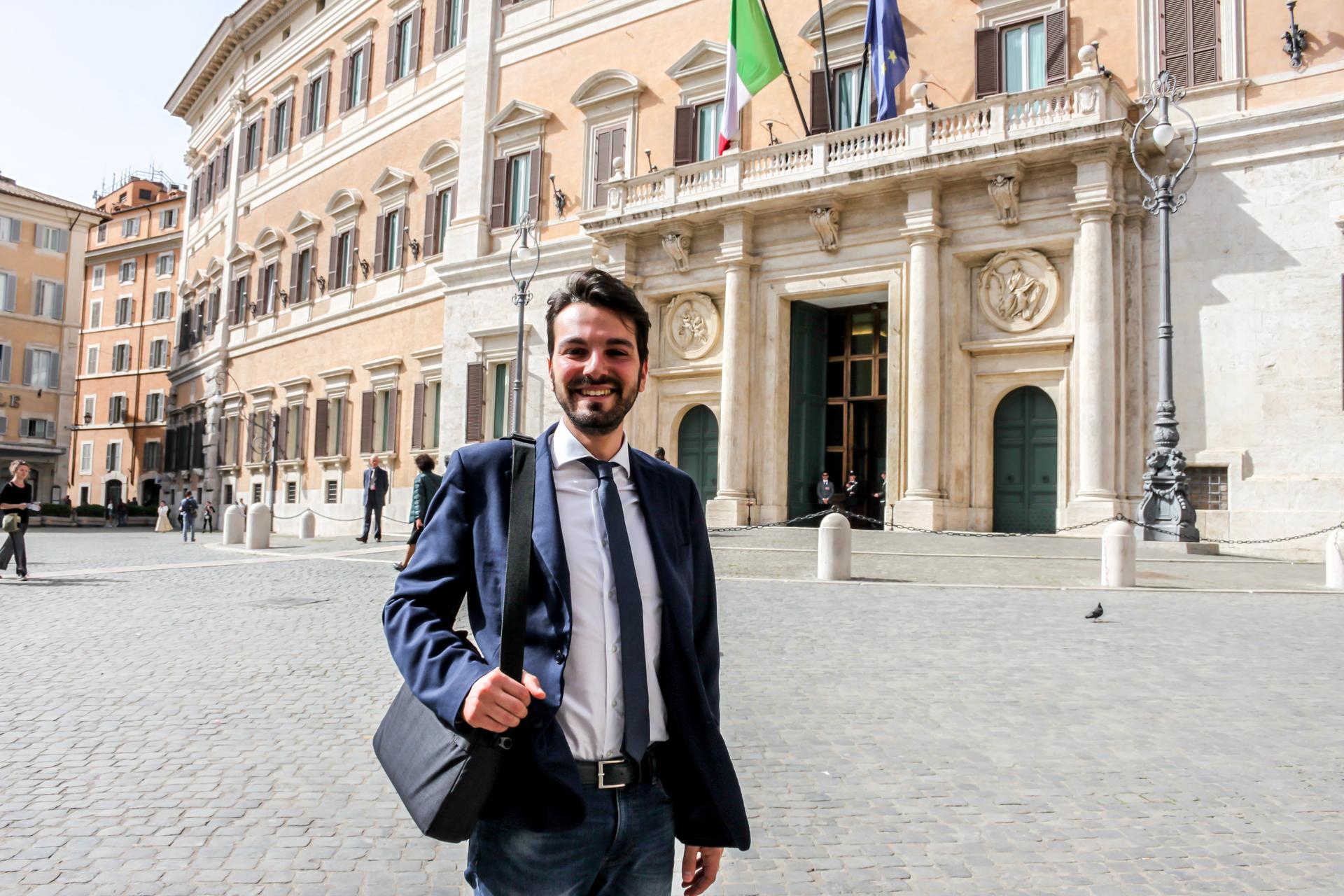
In a way, Berti and his Five Star colleagues are impostors. Five Star participated in its first national election in 2013, gaining 25 percent of the vote. In new elections on March 4, it was the top vote-getter, with 33 percent. The party began as an anti-establishment protest movement in the wake of the economic crisis, when Italy endured its longest recession on record.
They have pledged to drive corruption from Italian politics, to introduce a universal basic income and to launch a green energy revolution. Those policies could become law — if Five Star can form a government.
Five Star’s rise comes with the decline of Italy’s two main centrist parties, a trend seen elsewhere in Europe — in Greece, Spain and France. The media are still playing catch up.
Related: How the murder of a young woman turned Italy's elections into a referendum on immigration
During the election campaign, headlines focused on Silvio Berlusconi’s political comeback instead of the party leading the polls, Five Star. In the end, Berlusconi’s center-right Forza Italia was pushed to a lowly 14 percent of the vote. The center-left Democratic Party, which led the last government, recorded the worst result in its history with less than 20 percent of the vote.
Why have Italians lost faith in the political establishment? The country’s return to economic growth has been sluggish, while unemployment remains high — at more than 10 percent; youth unemployment is almost double that. The swing towards Five Star is partly a revolt against a political class that has done little to improve the lot of ordinary Italians.
“The left wing has demonstrated that after 18 years of fake opposition to Berlusconi, that once they had [their turn], they didn’t do anything against him,” says Lapo Sermonti, a Five Star voter from Rome. “That’s the reason why Five Star has exploded.”
This probably sounds familiar. Since the economic crisis, a wave of populism has swept through Western democracies: Donald Trump in the US, Brexit in the UK, and with far-right parties entering government in Austria and surging in Germany. With Five Star now in negotiations to form a government, that wave shows no sign of breaking.
Five Star’s warp-speed trajectory is mirrored by Francesco Berti’s own career. I first talked to Berti in 2016. Back then he was an attivista — “activist,” as party members call themselves — in the grassroots of the movement. He had first become interested in Five Star shortly before the 2013 election. Then, last December, he put his name forward as a potential candidate using Rousseau, the pioneering direct democracy platform that lets Five Star members vote on policies and candidates.
Rousseau was created by the late Gianroberto Casaleggio, a web entrepreneur who founded Five Star with firebrand comedian Beppe Grillo a decade ago. Through this online platform Five Star claims to be giving decision-making power back to the people. This, along with two-term limits for all its representatives, is designed to thwart career politicians with ties to vested interests and organized crime; the mafia continues to wield enormous power in Italy.

A few days after Berti put his name down to be a candidate, members voted him onto Five Star’s candidate list. Now Berti is a member of parliament. He’s well aware that this is not a typical state of affairs. But he doesn’t feel unprepared.
”I didn’t just fall from the sky into the parliament,” he says, over lunch in the general canteen (Five Star deputies refuse to eat in the parliament’s restaurant reserved for elected representatives). Berti used to work as an assistant in the EU parliament and has a degree in law. “In the last year of activism, I learned to listen to people, learned to see what the pain over the system is.”
It is Five Star’s populist answers to that “pain” — especially the universal basic income pledge — that won so many votes and made the establishment tremble.
In the recent election campaign, there was little serious analysis of Five Star in the media — much of which is owned by Berlusconi — with the focus largely on scandals in the party. Five Star has been called anti-establishment, anti-EU and anti-immigrant; rarely has the press sought to explain what it actually supports.
Part of the issue is that Five Star is not easy to define, claiming to be beyond “right” and “left.” Its proposals are extremely varied due to having been crowdsourced on Rousseau. Its flagship policy is a universal basic income, which would guarantee every citizen 780 euros a month; employees earning less than that would be topped up by the government, while job seekers would do community service in return. It could cost as much as 15 billion euros to implement. Five Star’s crowdsourcing means that peculiar proposals, such as opposing mandatory vaccinations, have floated to the surface. It has also influenced a changeable attitude towards the EU, with the leadership only recently stepping away from an earlier pledge for a referendum on the Euro.
Yet Berti and his colleagues believe that through tools like Rousseau, Five Star can give power back to the people. Now, Five Star is on the verge of testing these ideas in government.
If you look at the electoral map, it appears the whole of southern Italy voted for Five Star Movement. That leads me to Naples, near where Luigi Di Maio is from, and home to another of Five Star’s early organizers, Roberto Fico, who has just been voted president of the Chamber of Deputies.
“Southern Italy is starting to get angry,” says Francesca Menna, a Five Star councilor for the city of Naples. Unemployment is historically high in the south — now at 19.4 percent — while 47 percent of southern Italians are at risk of poverty. The political class has done little to address these problems. “The south is becoming aware. Citizens have seen that they can change things. That they can participate in politics,” Menna adds. “There is no wall.”
“I believe that we’ve made it to this dramatic point where the only cry we could make was this— to say basta, enough,” says Gilda Sportiello, a 30-year-old Naples local who has just been elected to the Chamber of Deputies. “The good thing is that while in the south the voto di scambio” — whereby votes are traded for favors — “is very common, this time that didn’t happen, so the result has even more value.”
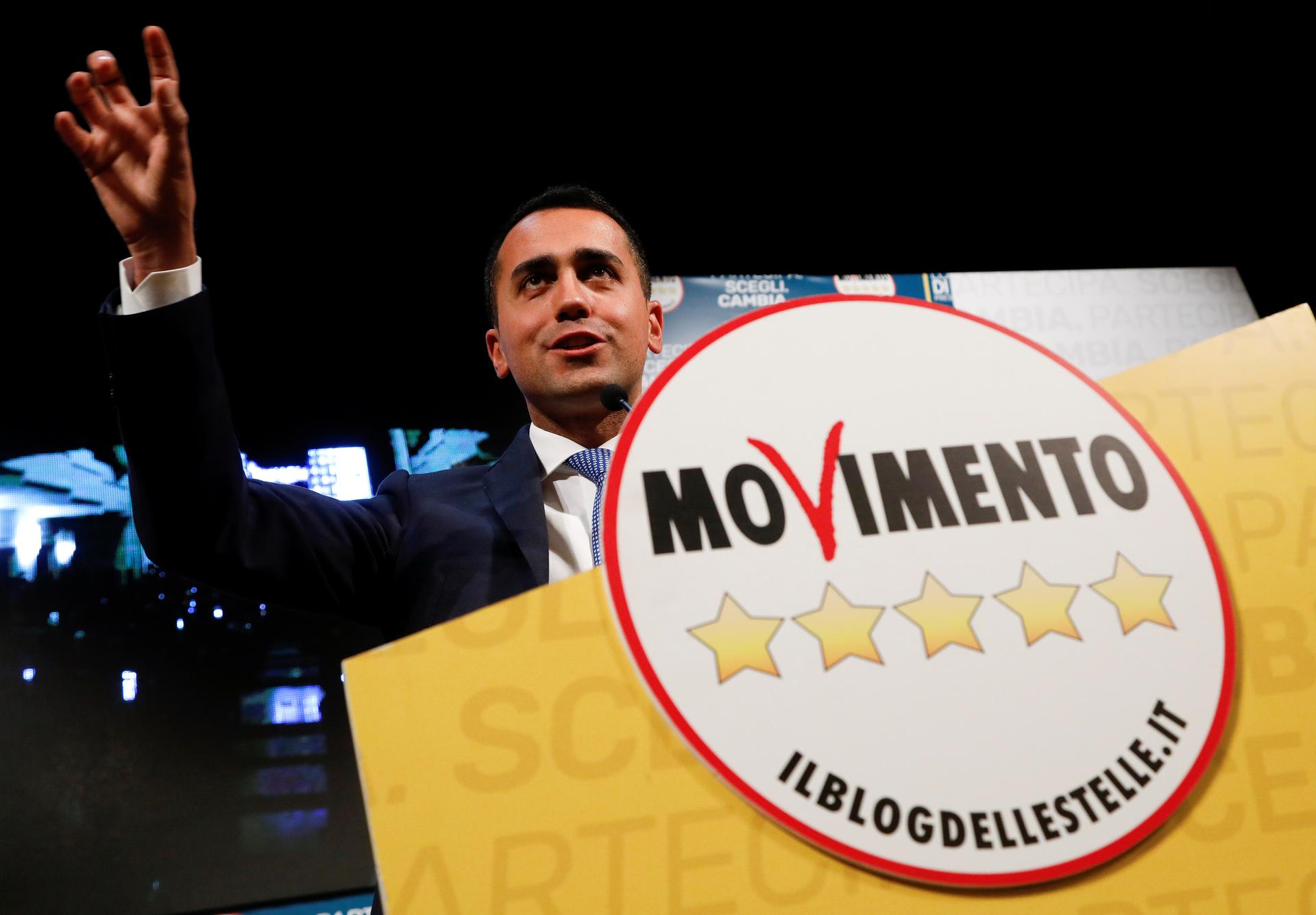
In other words, southern Italians voting for the anti-corruption Five Star must mean they rejected voto di scambio. But Cecilia Sottilotta, professor of international relations at the American University of Rome, thinks it unlikely that Five Star could have swept the south without some agreements with local mafia.
“Mafias work like parasites. They need to piggyback on state structures to flourish,” Sottilotta says. “As such, they are very pervasive and well-established on the territory, to the extent that it is easy for them to infiltrate virtually any political party.”
Indeed, Five Star has had problems with vetting candidates. It came out during the campaign that several candidates were under investigation for alleged criminal conduct, including one personally endorsed by Di Maio. But as Sottilotta says, “The problem when you are a Jacobin in politics is that you either stick to the high standards you set or you easily lose credibility. This is a challenge for Five Star.”
People within Five Star like Menna and Sportiello were themselves surprised by how quickly the party grew. When they first got involved a decade ago, the infant movement was opposed to even forming a political party. It all started with gatherings in piazzas organized online. These informal get-togethers evolved into huge V-Day, or vaffanculo rallies against the political class led by Beppe Grillo. “Media from all over the world came,” says Sportiello. “Everyone was there, except for the Italian press.”
The rallies grew into a political movement thanks in part to Casaleggio, who started a blog for Grillo and urged the movement to field candidates. Casaleggio died in 2016. Since then his son has separated his father’s company, Casaleggio Associates, from Five Star, but he continues to run the Rousseau platform.
“The elephant in the room when we talk about Five Star is the governance system,” says Alberto Alemanno, who ran in the elections with the pro-EU More Europe, and is a Jean Monnet Professor of EU law at HEC Paris. “We don’t have much information about how the movement depends on the platform and what the role of Casaleggio Associates is.”
Alemanno notes that, for all the refreshing talk of direct democracy, participation on Rousseau is thought to be low. This means that votes are often decided by a small, but very vocal minority who have access to the digital platform.
It also recently emerged that Five Star’s “crowdsourced” electoral program had been significantly altered by the party leadership.
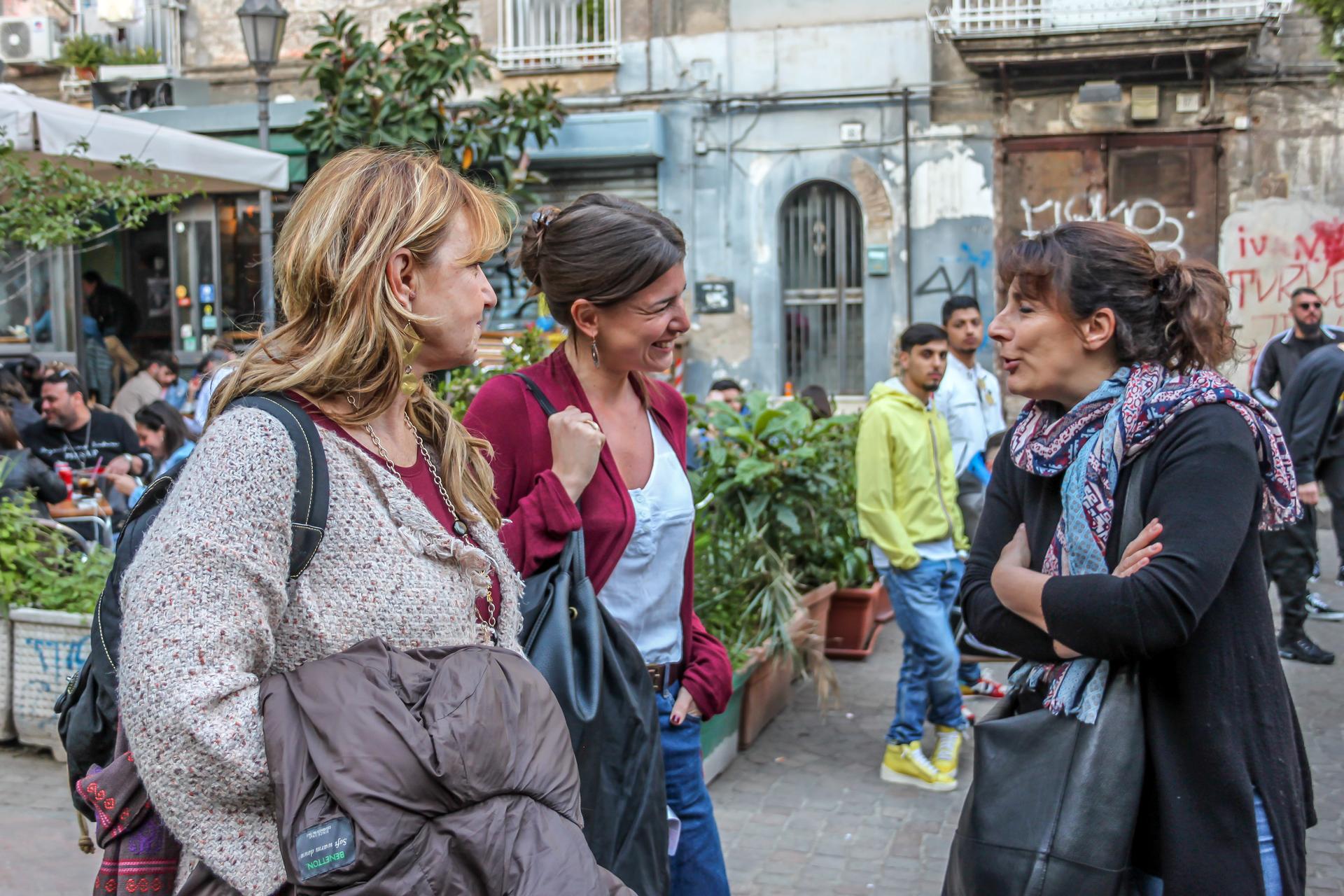
Five Star activists and representatives tend to see accusations of shadowy motives as part of a media agenda against them. “It’s difficult to get the truth out,” says Sportiello. “But we are always in the piazza … and through social media we carry our message directly to the people.”
Facebook is one of the primary vehicles for this — Luigi Di Maio has 1.6 million followers, more than rivals Berlusconi and the Democratic Party’s Matteo Renzi. His videos and live feeds can garner as many as a million views. The media’s opposition to Five Star may have even fueled its growth — Italians are deeply mistrustful of traditional media and increasingly get their political info from the internet.
Five Star now sees itself as an agent of change against a “corrupt” political system. Like her colleagues, Menna says she did not become a city councilor to build a political career, but rather “because there was a need for someone,” she says. “Now it’s me, tomorrow it’s him, the next day it’s you. I’m just the megaphone.”
Newly elected Gilda Sportiello sees this as a major shift: “I think the change is already born, and that’s why we’ve gained so much trust from the electorate. In fact, the political class is already looking to imitate us,” she says.
But Five Star is no longer a protest party — it is trying to form the next government. And with power comes compromises. “Five Star? It’s something different,” a tough-looking Napolitano bar owner tells me. “But politics is a business like any other. You can’t make a pizza without getting your hands in the dough.”
For Five Star, that may mean making an alliance with the hard-right, nativist party Lega, which humiliated Berlusconi by beating his Forza Italia in the election. Many Five Star activists and voters have come from the left, abandoning the crumbling Democratic Party in favor of Five Star’s ambitious social programs. How would they swallow a deal with Lega, whose election campaign was one of rampant xenophobia?
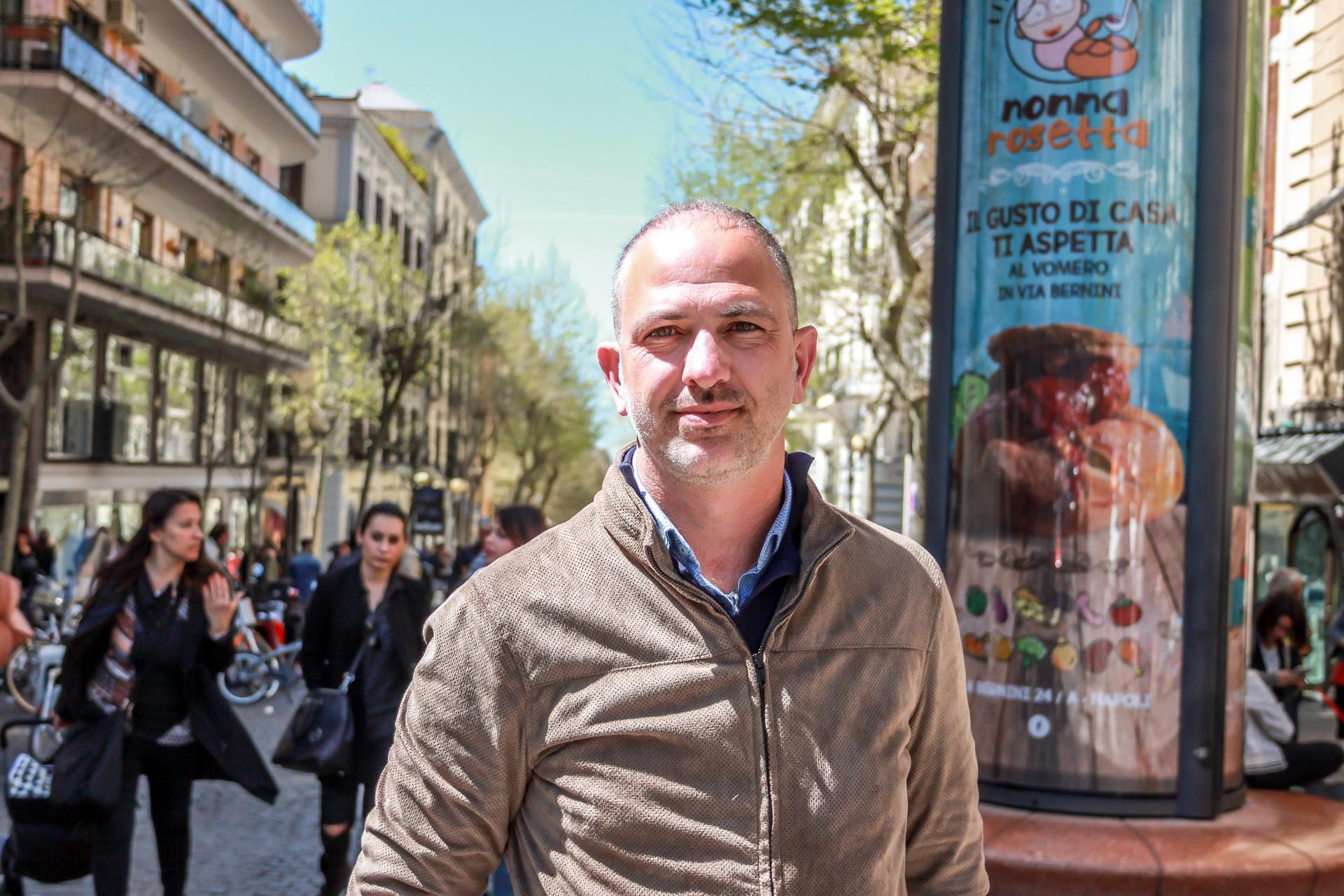
Five Star claims that it is a proposing a German-style “contract” — an agreement on specific policies — not a formal coalition. But not everyone is convinced. “We never once said before the elections that we would go with Lega,” says Luigi Nave, a councilor for a town near Naples.
“We have very few things in common,” he adds. “What happens if they decide to do it? We will see.”
A couple of days before our visit to parliament, Berti is discussing the question of compromise with Gianluca Sgueo, professor of media, activism and democracy at New York University in Florence, over dinner at Sgueo’s apartment in southern Rome.
“Five Star is in a phase in which they have the chance to mature as a ruling party. This brings compromises,” says Sgueo.
The trouble with compromising is that Five Star risks becoming like the traditional parties it criticizes. Sgueo cites rumors that Five Star will change internal party rules limiting elected representatives to two terms. “Two terms” could be redefined to mean 10 years in office, so that bigshots like Luigi Di Maio get more time.
In Berti’s view, “Compromise is good if you make it in the public interest, not if you make it in the elite interest.”
“So who decides if it’s in the public interest?” Sgueo asks. “You?”
Sgueo’s point highlights the paradox facing a grassroots populist movement gaining power. To form a government, Five Star Movement will likely be forced to make compromises with the political establishment. In such a scenario, how long will the party be able to call itself the outsider?
What worries Sgueo more than comprises, however, is inexperience — a criticism made repeatedly about Five Star.
“I celebrate Five Star as something fresh, because nobody ever said that politics has to be a career, which it has been in Italy the past 40 years. But you still have to develop a full understanding,” Sgueo says, “and that scares me. Because you have the power to make things happen, and you can’t make things happen in the right way if you don’t know how the system works. … I’m scared about having people who are just passionate — passion is not enough. They lack preparation.”
After dinner, I share a taxi back to central Rome with Berti. His enthusiastic talk of making a difference in Italian politics is halted every now and then by him spotting a famous sight through the window. Berti, who’s from Livorno in northern Italy, admits that he doesn’t know Rome very well yet. When we pass the Colosseum, his face lights up and he gazes with awe.
In that moment, it’s hard Berti’s age. At 27 (going on 28), he still has a lot to learn. But does that mean that he, and other young Five Star representatives like him, aren’t ready?
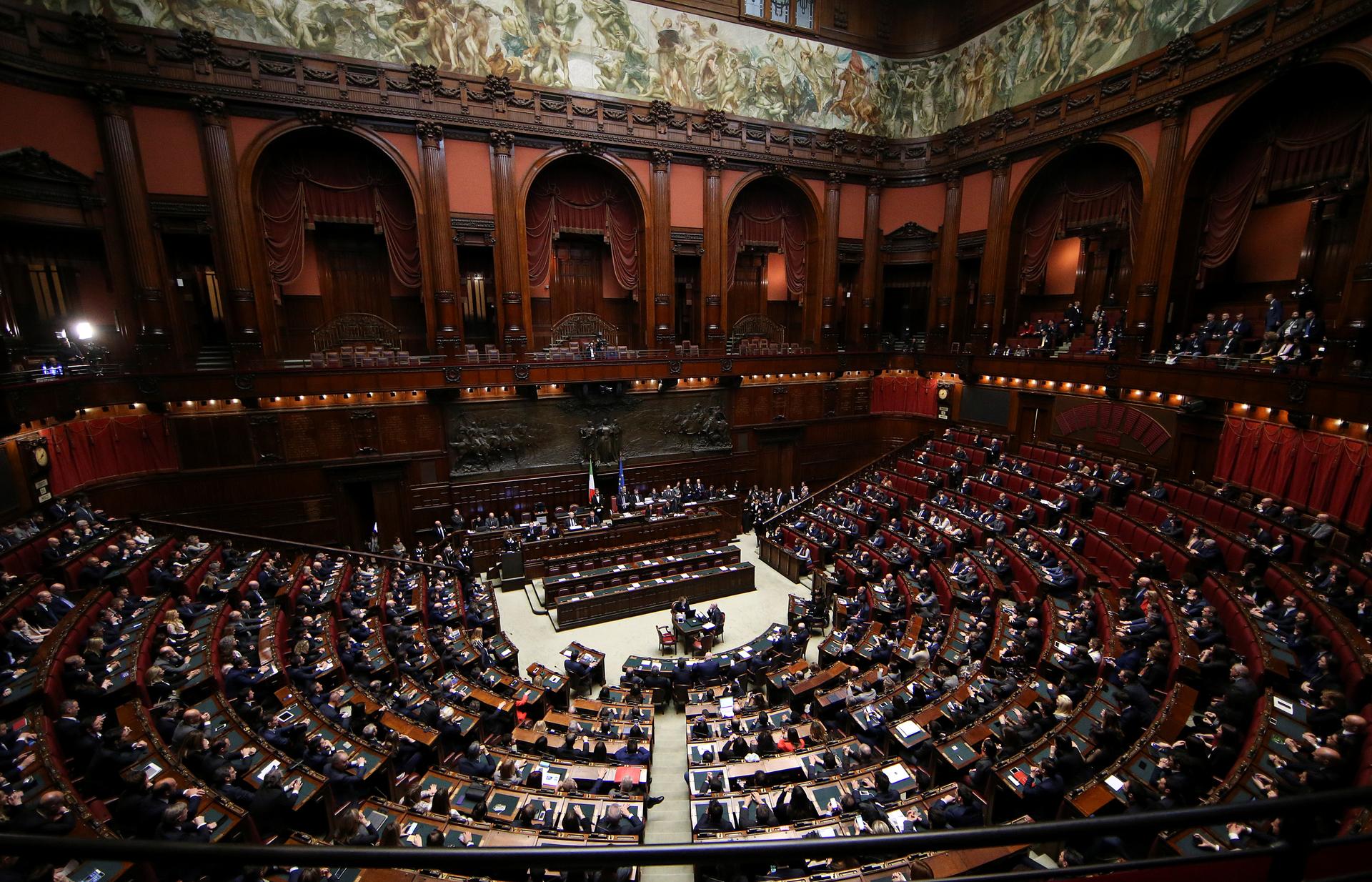
Back in parliament, Berti is clearly thrilled to be here. In a room of gilt mailboxes for elected representatives, he points out with a grin that his box is just below that of Pier Luigi Bersani, former secretary of the Democratic Party, a famous politician in Italy.
“You cannot ignore what this building is,” Berti says, adding that he never imagined he would be so impressed. “It’s above expectations — it’s really a beautiful palace,” he says. “I have a deep and profound respect for it, but not just for the symbol. … I mean, you need to do something to make this place not just like a museum, but something that does good.”
While Italy’s old political class is stacked with careerists, Five Star representatives like Berti claim to speak for the people they represent. It’s an obvious-sounding slogan that other politicians like Berlusconi have trotted out in the past. But Five Star is theoretically immune to career politicians co-opted by vested interests due to the two-term limit on serving. This could be revolutionary in Italy.
As for the argument that politicians should be experienced, Five Star has an answer: professional politicians have run the show for decades and Italy is in a mess.
Berti says when he feels “impostor syndrome” about his entitlement to be in parliament, he remembers the old-guard politicians he’s seen all his life, “who didn’t know the law, didn’t know a single word of English … who didn’t represent whatsoever the citizens,” he says. “This motivates me.”
Our coverage reaches millions each week, but only a small fraction of listeners contribute to sustain our program. We still need 224 more people to donate $100 or $10/monthly to unlock our $67,000 match. Will you help us get there today?
